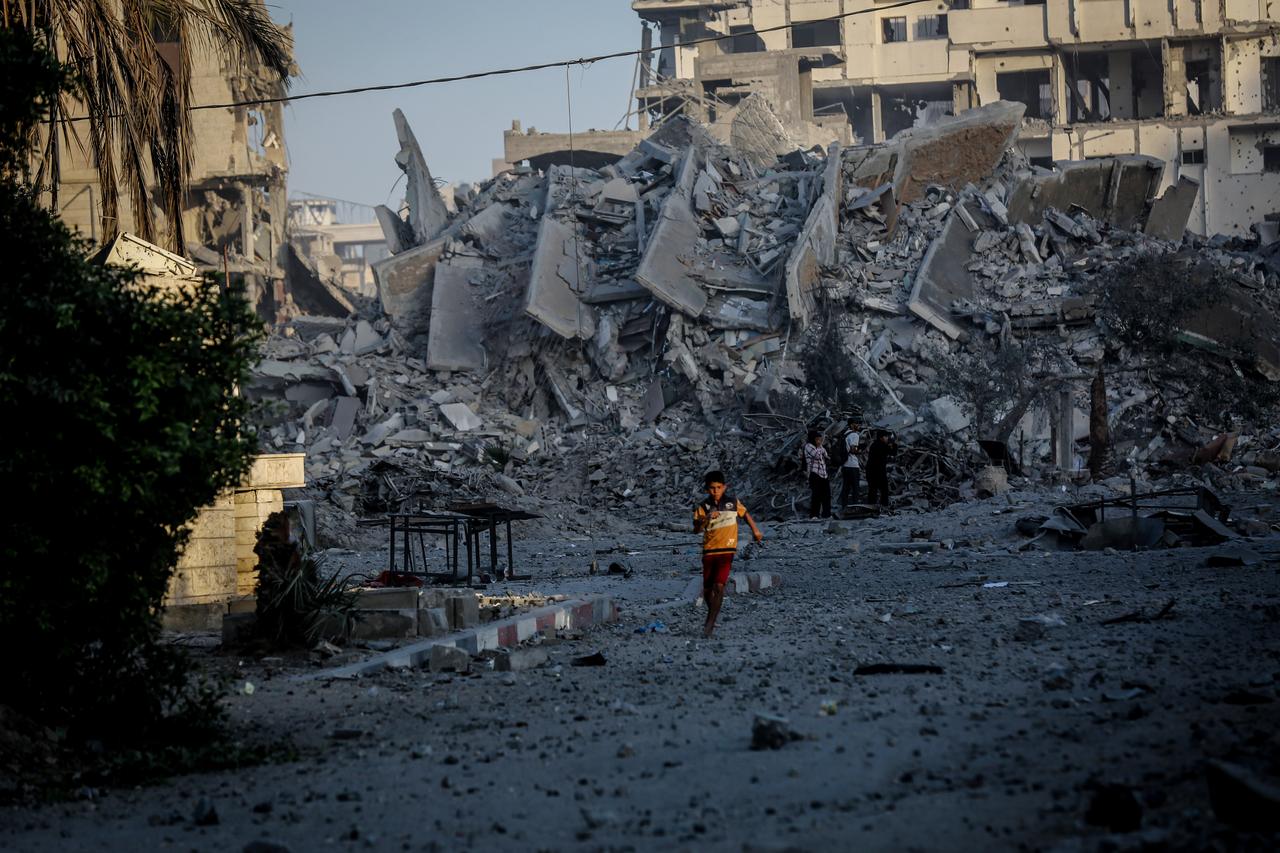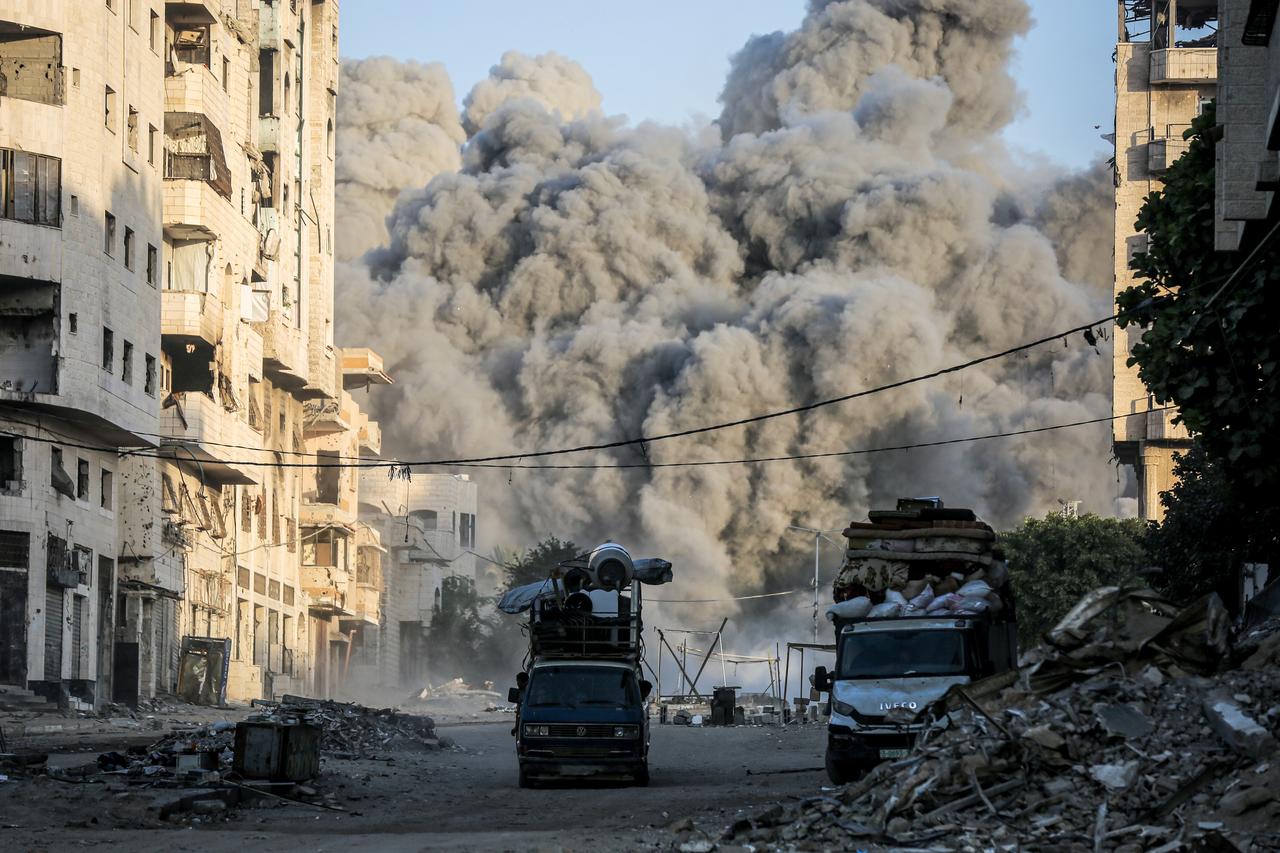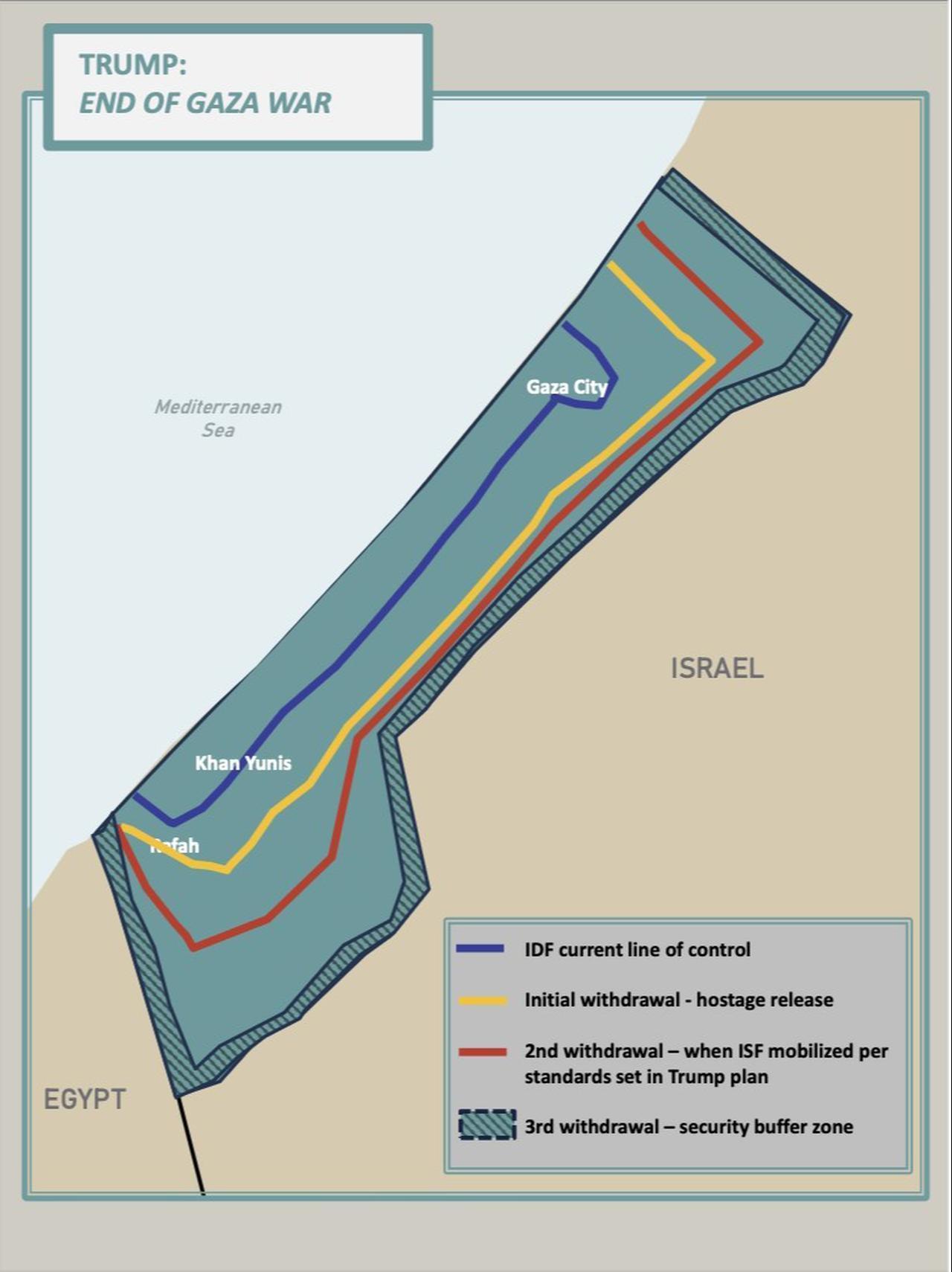
U.S. President Donald Trump and Israel's President Benjamin Netanyahu unveiled a modified version of the Biden administration’s Gaza peace plan on Sept. 29 at the White House. This plan grants Israel virtually everything it wants politically, framing Gaza as the side that must be reformed or subdued. The 20-point plan contains elements that fluctuate between stabilization and nation-building. Why does it not amount to a full nation-building program? Because, in the end, what is being offered to Gaza, and by extension to Palestine as a whole, is merely a proto or quasi-state. In practice, it is a political entity that is open to all of Israel's sanctions, pressure, and future violence, but it is not a state.
In this regard, we must carefully consider the scenario that will unfold. Even if we assume the plan meets Israel’s key demand that Hamas dissolve itself to end the war, it still appears unrealistic. Nevertheless, problems will persist in Gaza, where Hamas has laid down its arms legally and continues its political activities in exile.
Just as Paul Bremer’s Coalition Provisional Authority (CPA) was imposed on Iraq, an executive board is now being imposed on Gaza. According to the White House statement, Trump will head this executive body, and Tony Blair will also serve on this board. The missions of the Gaza International Transitional Authority (GITA), which Blair will actively lead, and Bremer's CPA are essentially the same. CPA's de-Baathification policy will be followed by GITA's de-Hamasification. All the structures established by Hamas, which has long provided security and other public services in Gaza, will be dismantled, much like the process initiated by the CPA’s Order No. 1 and Order No. 2.
During the Iraq invasion, a multinational force assumed security responsibilities until the government that the CPA pledged to establish was in place. A similar approach is now being proposed for Gaza.
Many people believe that the situation is not the same. They argue that there are sectarian differences in Iraq, which is why complications have arisen. They are partly right. However, we are faced with a very similar plan under the headings of Governance and Institution Building, Security and Demilitarisation, Economic Restructuring and Development, and Social and Ideological Reforms.

Moreover, these points are far from benign; they do not lay the groundwork for a transitional proces s that would ultimately lead to a Palestinian state. We are faced with a scenario in which Trump's Riviera plan is presented as a slightly more subdued and developmental construction project.
Under the heading of Social and Ideological Reforms, this Trump-style developmental approach aims to create a Palestinian population deprived of its fundamental demands and rights in Gaza, much like Bremer did in Iraq.
In this regard, the plan that Trump boasted about for nearly 30 minutes does not meet any of the Gazans' demands. On the contrary, it aims to reshape Gaza in a way that meets Israel's needs. So, is this possible?
What does this plan, which demands that all Palestinian groups in the Al-Aqsa Flood Operations Room, particularly Hamas, lay down their arms and refrain from seeking control of Gaza, offer Gazans in return? This plan places Gaza’s administration in the hands of Israel’s staunchest allies—Trump and Blair—while entrusting its security to an as-yet undefined international force. Sound familiar?
One would have to be detached from reality not to see that this part of the plan will lead to the greatest handicap in terms of conflict resolution: the radicalization of those deprived of their rights and representation. This is a general observation and a realized truth. We observed this very closely in Iraq and Afghanistan.

It would be naive to say that this will not happen in Gaza. The West’s record with externally imposed “reform” projects disguised as development is clear: every attempt to reshape a society’s fabric under the banner of conflict resolution but through one-sided, imposed conditions has, in one way or another, led to second, deeper, and more severe crises.
So, what plans will be made to dismantle this sociological-ideological structure in Gaza, where these ties are stronger? We cannot yet say that Iraq has fully recovered from the profiling and detention campaigns carried out by Bremer and the international forces there, because at that time, too, there was a claim of “deradicalization”, just under a different name.
Even in a scenario where everything goes well, we will be faced with a Palestine that lacks territorial integrity, is unable to defend itself, and whose financial dependence on Israel's banking system is guaranteed. For Israel's security, no political movement other than Palestinian President Mahmoud Abbas and his team will be permitted, there will be no elections, and everyone will hope that the Palestinians do not react to this.
We know and have experienced that those deprived of rights and representation seek more forceful solutions, and that the tendencies of broad masses denied their expected political rights are becoming increasingly extreme.
In this respect, Trump’s proposed plan, like those before it, does not address the root problems but merely covers them up. However, in the medium to long term, it risks making the crisis even worse.
It looks like we'll be discussing these issues if Hamas unconditionally accepts Trump's offer, of course.